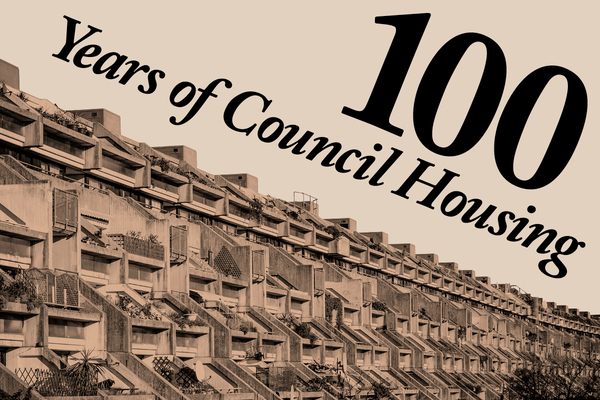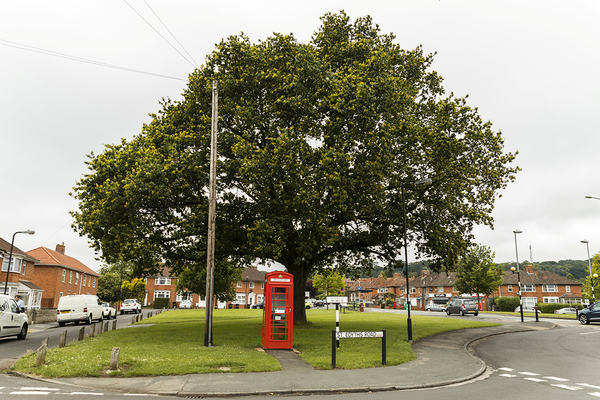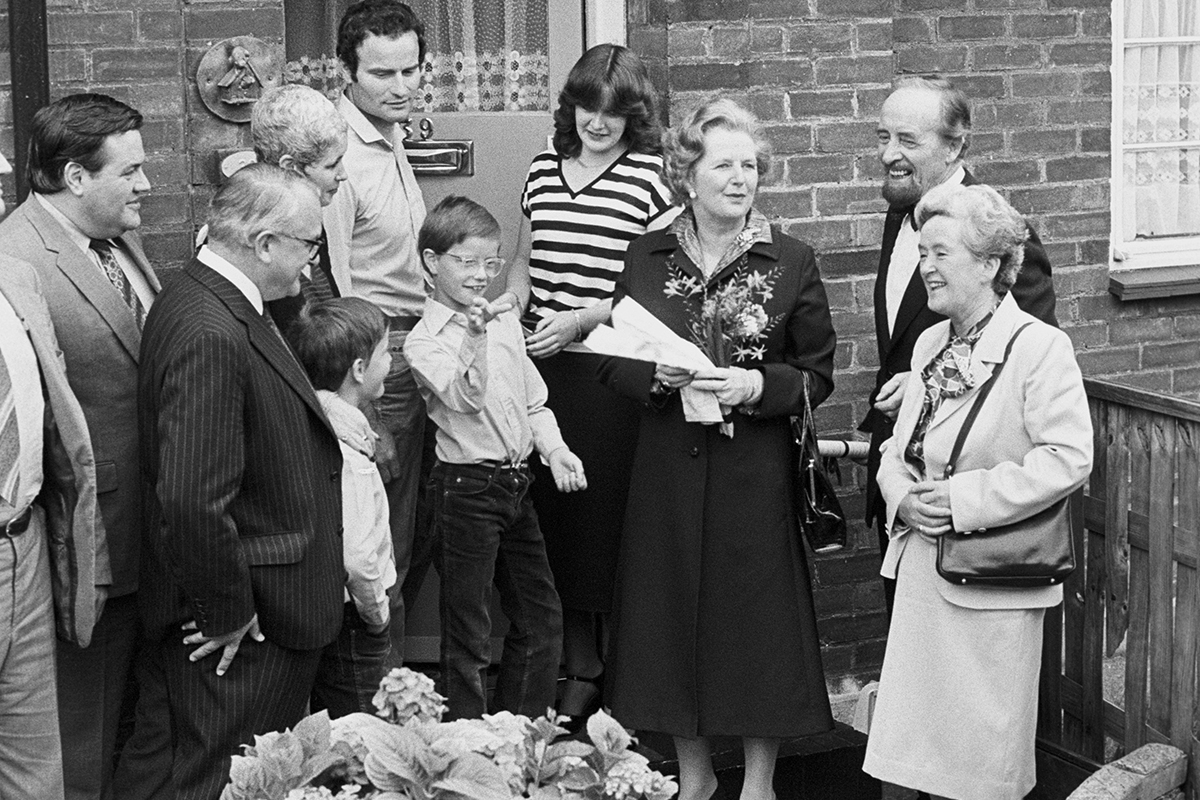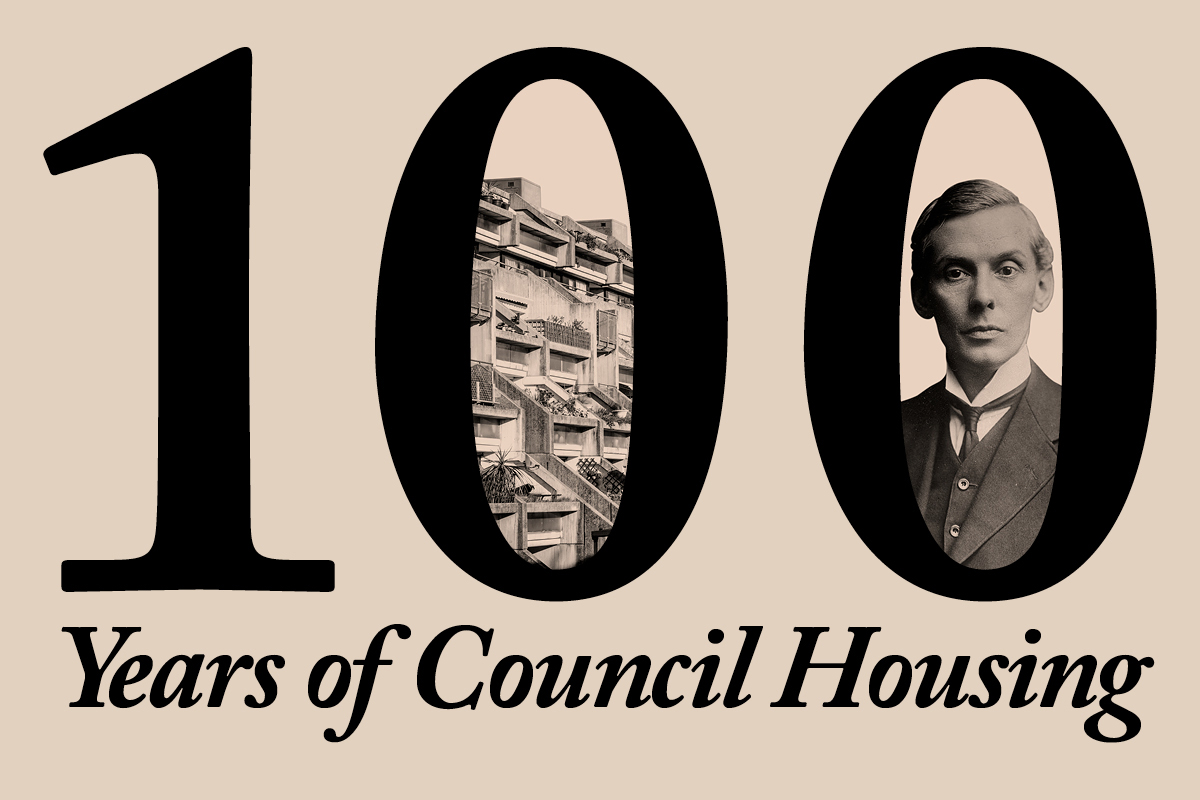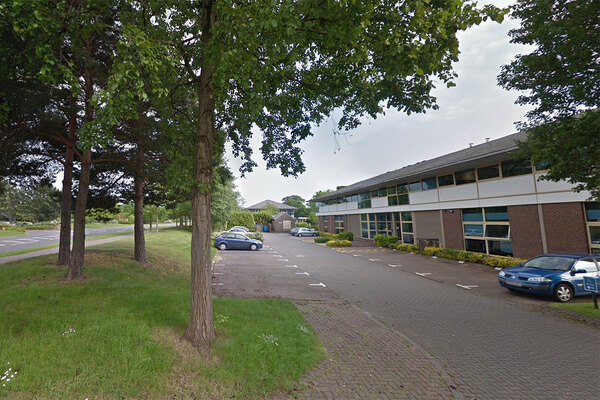Kit Malthouse: ‘Council housing is coming back with a vengeance’
Kit Malthouse celebrates a year in his job as housing minister this week. He tells Martin Hilditch why growing numbers of councils are looking to get back into development – and why he wants to reform Right to Buy. Photography by Rex Features and Press Association
Inside Housing is publishing a number of articles this month to mark the 100-year anniversary of the Addison Act, which paved the way for large-scale council housebuilding.
This week is about a string of anniversaries for Kit Malthouse. For starters, he has just become the first person to complete a year as housing minister since Brandon Lewis was reshuffled in 2016. It is a role that has become a revolving door for politicians, so Mr Malthouse is now one of the longest-serving housing ministers of the past decade.
He agreed to speak to Inside Housing this week to mark an even more significant birthday. This month is the 100th anniversary of the Housing and Town Planning Act 1919, otherwise known as the ‘Addison Act’ – the legislation that created large-scale council housing as we know it, establishing the principle of state-funded provision to support low rents.
Inside Housing is planning a whole range of activity this month to mark the anniversary – but we wanted to kick things off by asking the current housing minister what he thinks the future holds for council housing. We also wanted to catch up on what impact the abolition of councils’ Housing Revenue Account (HRA) borrowing caps last year is having on the scale of their ambitions – and whether it is tempting any new players to the table.
And, of course, we wanted to push him on Right to Buy, which has cut a swathe through the sector over the past 40 years.
We start by asking Mr Malthouse whether he sees councils as having a role that is chiefly strategic in the future, or whether he would like to see them involved in large-scale direct delivery.
“Personally, I would like to see large-scale development activity,” he says. “What we are hoping is that councils will be ambitious about the new freedoms that they have got [in order] to step up and take their place alongside everybody else who is building.”
One of the advantages of council housebuilding from the government’s point of view is that “it is counter-cyclical”, he says. So, when the property market waxes and wanes – “which it has done throughout all of our lives”, he adds, neatly avoiding all mention of Brexit – the intention is that “we hope that through the Affordable Homes Programme and now the council housebuilding programme, we could maintain levels of activity and preserve capacity”.
“Is there some way that we can preserve the ability of everybody in society to preserve their shot at ownership?”
The other key role for councils, he adds, is that “if they are smart they can now be innovators and lead the way and de-risk, if you like, the new technology that is coming along for the private sector, who from my point of view really need to adopt it, if we are going to get the kind of volumes that we need”.
What is the extent of the delivery Mr Malthouse is expecting from councils, though?
He hopes that with new financial freedoms, “we will see a growing confidence among civic leaders that this is something they can and should do as part of the general planning for their area, and that they now have the ability to do it”.
What about councils who transferred their stock to housing associations and no longer have an HRA?
For example, Liverpool City Council transferred the last of its stock in the late 2000s, but has been making noises in recent months about building new council homes. Are other councils that do not own any homes making noises about returning to the table?
According to Mr Malthouse, they certainly are. He says he is getting “more and more enquiries from councils like: ‘We don’t have an HRA because we gave our housing away. Can you help us in some way to
establish an HRA?’”
Are those enquiries few and far between, though? Not according to the housing minister. He says that the number of councils coming up to him at conferences and events “to express an interest in getting back into the business” is in the tens, and all are keen to discuss how to make the most of the new freedoms.
“What you would hope is that when some of the thought leaders among local authorities start to step forward in that way, others will follow,” he adds.
“I definitely recognise the disincentive to new building that the Right to Buy creates”
Mr Malthouse has talked about the importance of councils stepping up direct delivery. But how important are they to his vision? Can the government build its target of 300,000 homes a year without them, for instance? “I don’t think it will be possible without every sector stepping forward, and that includes councils, yes,” he says.
The housing minister seems keen for councils to take on more responsibility for delivery. But one area over which local authorities in England have been desperate to take more control is the Right to Buy. The government of 2010 to 2015 increased Right to Buy discounts and councils have been losing thousands more homes than they have been able to replace, as a result.
Prime minister Margaret Thatcher (third right) hands over a copy of the deeds of 39 Amersham Road, Harold Hill, Essex, to James Patterson (at front door) and his family – the Greater London Council’s 12,000th council housebuyers
As part of its activity to mark the anniversary of the Addison Act, the Local Government Association (LGA) is calling on the government to help local authorities to deliver 100,000 council homes a year. In particular, it is calling for the devolution of Right to Buy, so councils can set their own discounts and keep all the sales receipts. Other campaigners want the government to either suspend Right to Buy or axe it entirely.
If Mr Malthouse wants councils to take responsibility for and ownership of delivery, does he think the LGA’s demand at least is justified?
“We consulted on Right to Buy receipts and we are in discussion with Treasury colleagues. Once that discussion is concluded, we will be making an announcement,” he says. “I was a councillor for eight years. My natural inclination is to give councils as much freedom and flexibility as we can. But as I say, these are decisions that will be taken above my pay grade.”
OK, Mr Malthouse will not get the final say. But clearly he will have had an important input into those discussions.
“The great thing now and the reason for celebration is that as far as we are concerned, it is back and it should be back with a vengeance”
Inside Housing pushes him on his personal feelings about devolving discounts and allowing councils to keep receipts. He responds cautiously, but significantly he does acknowledge that there is a huge problem with the current system that needs to be addressed.
“I definitely recognise the disincentive to new building that the Right to Buy creates,” he says. “The question is, is there some way that we can preserve the ability of everybody in society, whether they are a council house tenant or otherwise, to have their shot at ownership? Because my view is that everybody in society has the right to a shot at ownership if they want it. So, can we preserve that and remove the disincentive? That is the challenge for us and that is what we will be chewing on over the next couple of months.”
Our time draws to a close. But clearly we are talking today because of the anniversary of the Addison Act.
Ultimately then, what does Mr Malthouse thinks the future holds for council delivery? “The great thing now and the reason for celebration is that as far as we are concerned, it is back and it should be back with a vengeance,” he states. “We think it has to take its place alongside all the other housing. It is a proud component of putting a roof over the heads of the British people.”
100 Years of Council Housing: we want to hear from you
To mark the 100th anniversary of the act receiving Royal Assent in July, we have a month of special activities planned, including interviews with senior council housing figures, exclusive debate and comment, and investigations into what local authorities, past and present, are doing to help provide housing.
This will signal the start of a stronger focus on local authority housing issues over the coming months on www.insidehousing.co.uk and in our weekly print and digital editions.
We want to hear from you about your local authority is doing to mark the Addison Act and about the housing issues in your area, email: editorial@insidehousing.co.uk
Sign up to receive the latest housing news straight to your inbox through our exclusive Council Focus bulletin
If you are already a subscriber click here to manage your newsletter sign-ups
Click here to read more about our activity to mark the Addison Act
100 Years of Council Housing: what Inside Housing is doing
One hundred years ago, a piece of legislation led to the birth of council housing. Gavriel Hollander introduces Inside Housing’s celebration of the centenary of the Addison Act.
It is so ingrained in our national consciousness that it is hard to imagine just how radical the idea of local authority built and funded housing must have seemed a century ago. Before World War I, almost all housing in the UK was built by private developers (albeit with some notable municipal exceptions in major cities). Given this, it is unsurprising that both quality and consistency of delivery were variable.
The post-war introduction of subsidies for councils to solve the blight of slum estates was supposed to right a wrong and – in the words of then-prime minister David Lloyd George – provide “homes fit for heroes”.
The so-called Addison Act – the very first housing act passed in this country, named after its sponsor Dr (later Lord) Christopher Addison – received royal assent exactly 100 years ago this month.
It may never have achieved its aspiration of delivering 500,000 homes (something that may sound familiar to modern-day watchers of government housing policy) but it was the start of a movement.
New estates began to crop up across the country, built in accordance with recommendations from the Tudor Walters Report, which was produced to parliament in November 1918. This built on the ‘Garden City Principles’ and suggested a number of improvements to the standard of public housing. These included limiting the length of terraced-housing blocks, mandating a minimum number of rooms and providing indoor bathrooms.
“The post-war introduction of subsidies for councils to solve the blight of slum estates was supposed to right a wrong and – in the words of the prime minister David Lloyd George – provide ‘homes fit for heroes’”
Although the abandonment of subsidy in 1921 and a change of government the following year curtailed the immediate growth of council-built housing, the seed had been sown.
This month Inside Housing celebrates the centenary of the Addison Act with a month-long series of articles looking at how it transformed the social fabric of the country and created the housing sector we know today.
Over the course of this month, we visit four estates, each symbolising a different era of council housebuilding. We also take a look at whether new-found financial freedom for local authorities could be the catalyst for a new generation of estates.
To kick off the series, acclaimed social historian John Boughton visits one of the first estates made possible by Lord Addison’s historic legislation: Sea Mills in Bristol. We then travel to Stevenage to look at how the damage to Britain’s inner cities during the Blitz led to the new town movement and a fresh wave of estates through the 1950s and 1960s.
Martin Hilditch, editor of Inside Housing, takes a trip to Hulme in Manchester to examine how the private and public sector had to work together in the 1980s to deliver a regeneration project, which is still thriving more than 30 years later.
Finally, we go to Nottingham and look at one council with grand ambitions to provide housing to a new generation of tenants.
There may still be myriad challenges to face when it comes to providing good-quality, genuinely affordable housing for those most in need, but without the passing of an act of parliament 100 years ago, the sector we work in today may never have come to exist. That alone is worth celebrating.
To read more about the act, go to: www.insidehousing.co.uk/AddisonAct
More on the Addison Act
How George Clarke is aiming to end the housing crisis with his new TV show Architect George Clarke has long been a passionate campaigner for more – and better – council housing. As Inside Housing celebrates 100 years of the Addison Act, Martin Hilditch meets a man on a mission
100 Years of Council Housing: your tweets from week three Our favourite #100yearsofcouncilhousing tweets from the past seven days as our Addison Act activity moves into its fourth week
Nottingham's new wave Robyn Wilson goes to Nottingham to see what the next generation of council homes are set to look like.
If we’re going to have another 100 years of council housing, Right to Buy has to go The Right to Buy is having a devastating effect on the availability of council housing in this country and must be scrapped, writes Lee Sugden
What next for council housing? To celebrate the centenary of the Addison Act, Inside Housing asks a group of housing experts what can be learned from its legacy (sponsored)
Thatcher's legacy: a brief history of the Right to Buy An engine for social change or a handbrake on council development? We look at why the Right to Buy is as divisive as ever #ukhousing
A history of council housing: a timeline From the Addison Act to prefabs, slum clearance and the Right to Buy, council housing in the United Kingdom has a long and colourful history. Carl Brown looks at how it has evolved over time
Council housing: the key to a more equitable and dynamic society As the 100th anniversary of the Addison Act approaches, we publish an abridged extract of a book by Chris Matthews chronicling the history of council housing in Nottingham
Addison’s framework was scrapped but its legacy is more important than ever The fortunes of council housing have ebbed and flowed ever since Addison’s programme was abruptly halted in 1921, writes Jules Birch
Hulme: the redevelopment project that changed regeneration The redevelopment of Hulme in Manchester kick-started a new approach to regeneration in the UK – and the careers of some of housing’s best-known figures. Martin Hilditch joins them on a step back in time with lessons for today.
100 Years of Council Housing: your tweets from week two We pick our favourite #100yearsofcouncil housing tweets over the past week
Memories of council housing: the human legacy of the Addison Act As the centenary of the first council houses approaches, Peter Apps hears from some of the people who have lived in them in the decades since
Many of the sector’s current leaders began their journeys in council teams One hundred years of council housing has delivered a generation of sector leaders as well as millions of council homes, writes Mervyn Jones
Stevenage: home of the new town revolution Stevenage was the first of the post-war ‘new towns’. Gavriel Hollander visits the town to see how it has changed.
100 Years of Council Housing: your tweets from week one Inside Housing has been encouraging councils to say what they are doing to build homes and to mark 100 years of council housing. Here we feature a selection of your tweets
Kit Malthouse: 'Council housing is coming back with a vengeance' Housing minister Kit Malthouse tells Martin Hilditch why growing numbers of councils are looking to get back into development
Sea Mills: we visit one of the first estates to benefit from the Addison Act Social historian John Boughton visits a place in Bristol still cherished today
The Housing Podcast: is council housebuilding about to make a comeback Nearly 100 years after the introduction of the Addison Act, which kick-started the building of the first council estates in the UK, the Housing Podcast team examines the state of council housebuilding today
Why the 100th anniversary of the Addison Act should spark a council housing comeback Let’s make 2019 the start of a renaissance of council housing, writes Martin Hilditch
Are new borrowing freedoms sparking a revival of council housebuilding? The Addison Act marked the birth of council housebuilding. A century later, could recent financial freedom spark a renaissance? Nathaniel Barker investigates.
How Cornwall is taking inspiration from Christopher Addison Cornwall Council is one of many keeping the legacy alive, writes Kate Kennally.
The Addison Act - celebrating 100 years of council housing This year marks the 100th anniversary of the Addison Act – which paved the way for council housebuilding on a large scale. Inside Housing has a whole month of special activity planned and we want to hear your stories
The 100-year anniversary of the Addison Act means it’s time to talk about council housing Let’s use the 100th anniversary of council housing as we know it to flag up some of the great work that’s been done – and kick-start a conversation about the future, writes Martin Hilditch
London must recapture the housebuilding ambition of the Addison Act Councils are committed to development but are still facing unfair restrictions, writes Darren Rodwell of London Councils
Marking 100 years since the ‘Addison Act’ Professor Mark Swenarton writes about the Homes Fit for Heroes Centenary Conference
More council news
Council tenants on Universal Credit 16 times more likely to abandon tenancies
Council to claw back 260 Right to Buy homes
Local authorities accuse government of ‘sleight of hand’ over post-Hackitt regulation
Partner with housing associations to use borrowing freedoms, says LGA chair
Bristol City Council signs off partnership with L&G for 500-home scheme
Council boss warns against local authority ‘can't do’ attitude towards housebuilding
Right to Buy sales plummet 23%
Supreme Court rules against Birmingham Council in homelessness case
A bed every night: has Manchester's mayor succeeded in helping every rough sleeper in the city?
Council housing company to offer Rent to Buy
Council-owned regeneration company to build 500 homes
How has Haringey Council moved on from its development vehicle fight?
Liverpool to open HRA to build new council homes for first time in 30 years
How can London councils build more homes?
Birmingham Council’s housing company to build 2,708 homes by 2029
How are councils are using pension funds to build homes



